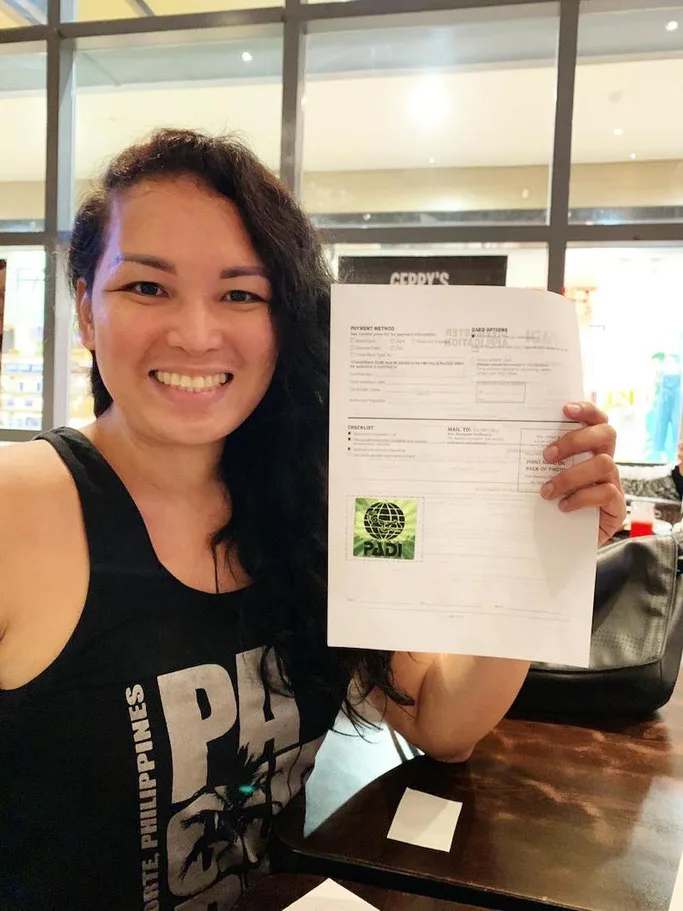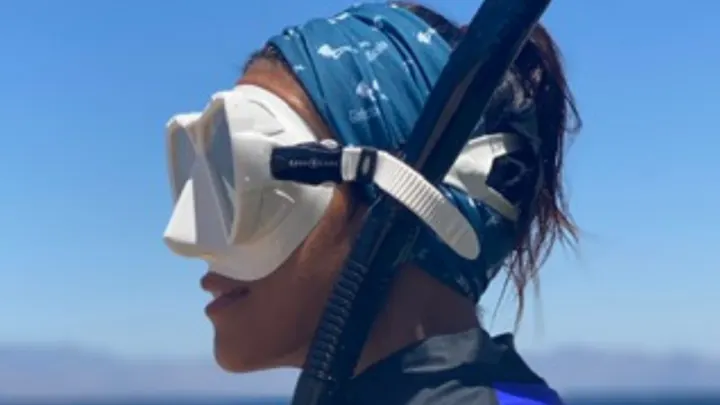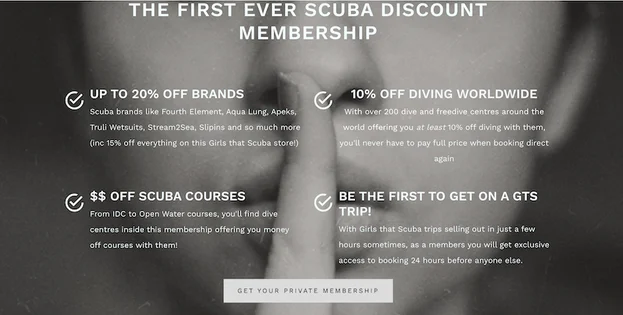Divemaster courses are always a hot topic in our Girls that Scuba group, and with so many different ways of completing the course there’s a lot to understand and a tonne of burning questions to answer! With that in mind, we’re sharing a whole series of posts on the Divemaster course to break down exactly what you’ll want to know when taking the first step to becoming a dive professional.
Within this GTS Divemaster Guide series, you can expect to learn more about what the divemaster course involves as well as the difference between Divemaster and Master Scuba Diver ratings. We’ll also be sharing the experiences of some of the GTS team during their Divemaster courses.
In this installment, we’re tackling the issue of divemaster internships. Once you’ve committed to taking on the challenge of becoming a professional scuba diver and decided to embark on your divemaster course, one of the first things to decide is how exactly to do your course. There’s lots of snazzy marketing out there for “free divemaster internships”, and this can be extremely appealing to those budget-conscious divers who are looking to complete their divemaster training as part of a long-term travel plan. These internships can differ hugely from completing the course as a paying customer. We’re here to share the pros and cons of each option and help you make a more informed decision on what type of course to take on, whilst offering some practical advice on how to tell the good from the bad and the downright ugly in the world of divemaster internships.
A note on terminology
The word “internship” is used in many different contexts with regards to divemaster training, and the use of the term is unregulated meaning that one “internship” can look entirely different to the next. For many, “internship” is used to mean that the diver doesn’t directly pay for the course (in $), but pays by working off the value of their course instead. This can be problematic for reasons we’ll discuss later on, but as this is probably the widest way in which the term is used within our community we use “internship” within this article to mean a course completed in exchange for work. The term “exchange” would perhaps be more appropriate but is less widely recognised, however, the phrasing surrounding divemaster course marketing is a wider conversation for another time!
It’s also worth noting that a divemaster course will look extremely different from one dive location to the next. Whilst the divemaster course requirements remain the same, the way the course is conducted can vary hugely; in some parts of the world it may be completed on the weekends as a hobby alongside working or studying full time, whilst others may complete the course more intensively, such as living in a dive resort environment and training as a divemaster six days a week. This variation in course styles may factor into what you decide to choose when it comes to a paid course or a worked-for-internship.

The perks of a “free” divemaster internship
Doing your divemaster training in exchange for working can be a fantastic introduction into the day-to-day workings of a dive operation. Alongside completing your course requirements you’re likely to be fully immersed into the team, and if you’re lucky, you’ll be alongside a cohort of other divemaster trainees to share in the experience. As well as the practical and theory elements of your course, you can expect to help in serving guests in the shop, selling courses, setting up equipment, maintaining equipment (dependent on your skill level), filling cylinders (again, skill dependent), and managing guest flow during the dive day. The expectations and jobs involved can vary hugely from shop to shop, but it’s safe to say it will be a diverse range of tasks and will be hard work!
As well as seeing the true workings of a dive operation, another advantage of an internship setup can be that other elements of your living costs are built into the experience. Some work-for-certification dive internship programs include accommodation or food, however, there can still be many other costs involved which you might not initially factor in. Whilst there will be some fun diving involved, don’t be fooled into thinking that a divemaster internship is a clever way to scuba dive for free.
The dark side of “free” divemaster internships
The saying that “nothing in life truly comes free” very much applies to this scenario, and unfortunately many divers find themselves having negative experiences during their divemaster training when they choose to take on a seemingly “free” divemaster internship. Dive shops who take on students in this capacity rightly need to receive something in exchange for this training, but this can lead to exploitative situations where divers are treated as “tank monkeys” and unfairly overworked. In extreme situations, some dive centres have even withheld certifications and not certified divemasters until they have completed a certain amount of work. Whilst these examples are rare, they can and do happen, so it’s worth understanding these worst case scenario possibilities if you’re considering a divemaster internship which you work to pay off. There are ways to protect yourself, however, so read on to learn how to tell the good from the bad when finding the best divemaster internship.
If you’re taking on an internship like this in another country, you should also consider the fact that the dive shop may be using your free labour in place of employing somebody from the local area. This means you may be inadvertently taking away a potential job for somebody within that local economy.
The pros of paying for your divemaster course

Completing your course on a paid-for (in $ rather than work) basis doesn’t mean you’ll lose out on the real-world experience of working within a dive operation. It’s an important element of the course in order to become a good divemaster, so any course which is worth its money will still allow (and require) you to be fully integrated into the running of the shop. However, paying for your course means that you maintain an important power balance between you and the dive school. If you’re paying for your education, ultimately the power is in your hands. Therefore if you feel like your course isn’t progressing as you would like it to, you’re in a position to have a conversation with your mentor, or even the dive shop manager if you feel you need to escalate it beyond your mentor.
In the interests of presenting a balanced argument we’d love to offer up the contrasting downsides of paying for your divemaster course, but there are so few in comparison to the potential downsides of working in exchange for the course. The only major drawback would be the sheer cost of the course as it can be extremely expensive depending on where in the world you choose to do the course.
The hidden costs of a divemaster course
Whether you choose to pay in hard earned cash or hard work, there are other costs alongside the price tag of the course itself which you need to factor in when planning to do your divemaster course. The obvious ones include the travel to your destination and the daily costs of food and accommodation, but don’t forget to include other living costs such as phone and internet contracts (particularly if travelling abroad), as well as the cost of visas. Another important cost which is often overlooked is the price of dive insurance and medical insurance, as well as the potential annual fees to your chosen certification agency. With these in mind, a “free” internship may not be as free as you initially think.
How do I choose the best divemaster internship?
Our guide on how to choose the right dive centre for your divemaster internship offers a great step by step approach to narrowing down a dive shop. We’ll reiterate the importance of asking to speak to previous divemaster graduates from the shop – if they refuse to put you into contact with anyone, consider it a huge red flag. Our GTS community in our Facebook group is always a fantastic resource for this purpose if you’d like to do this research more subtly.
Finally, if you’re choosing to do your divemaster internship in exchange for your work, ask for the expectations in writing. You should be able to see on paper exactly what is required of you (beyond the course requirements) in order to receive your certification so that you can avoid being put in an unfair position. This will allow you to enjoy the course as you rightly should, the divemaster course is one of the most enjoyable times of many people’s dive careers!
How did you choose to complete your divemaster internship? What advice do you have for a divemaster trainee? Let us know in the comments, join the discussion in our Girls that Scuba Facebook group, or share your story to us @girlsthatscuba on Instagram!


